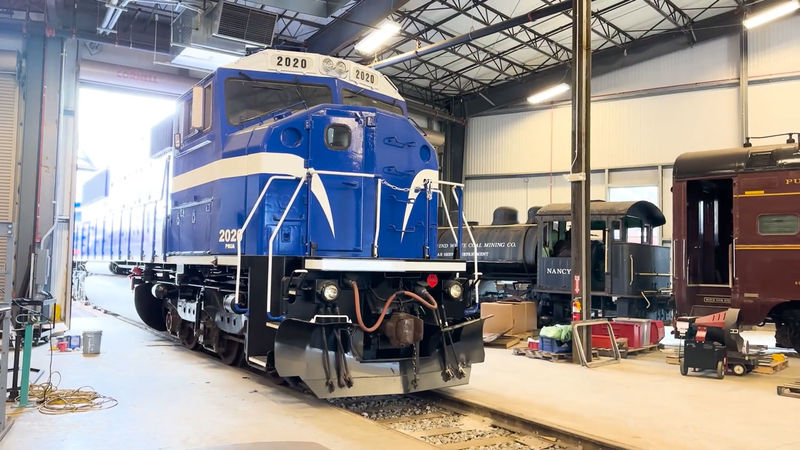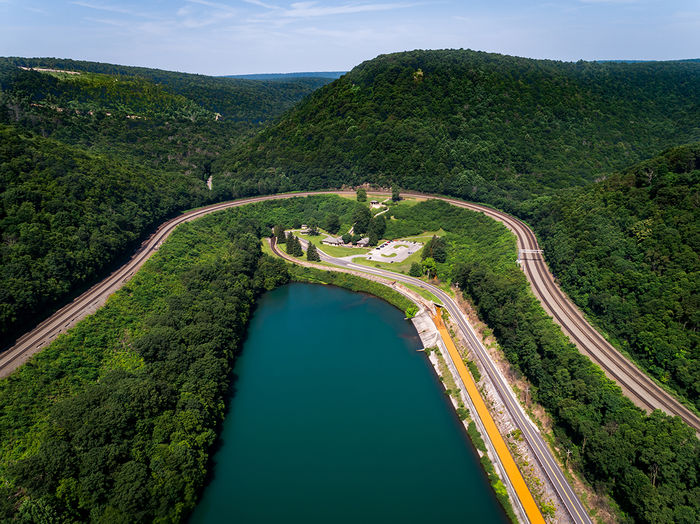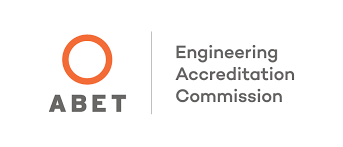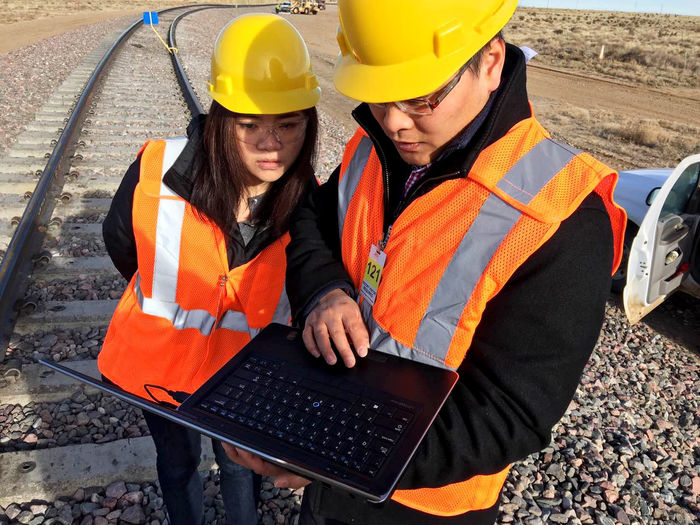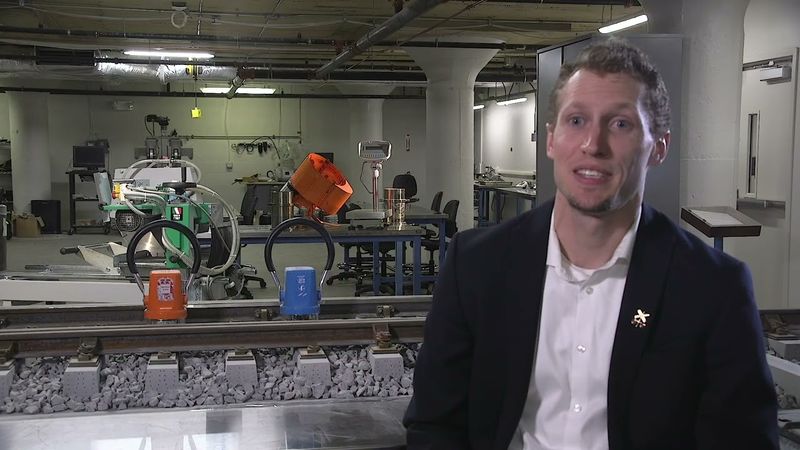Why major in rail transportation engineering?
Majoring in Penn State Altoona’s ABET-accredited Rail Transportation Engineering program offers a unique opportunity to be part of an industry that is undergoing significant growth and modernization.
With a wide range of career options, excellent job prospects, and the chance to make a positive impact on society, our railway engineering degree is an excellent choice for those passionate about engineering and transportation.
A worldwide resurgence in rail transportation has created demand for the next generation of railroad engineering professionals. With needs for sustainable transportation options, railways are being recognized as a crucial component of the future transportation system.
Governments and private companies are investing in expanding and upgrading rail networks, and majoring in rail transportation engineering will position you at the forefront of this exciting industry.
Gain Rail Industry Connections
Located at a hub for U.S. railroad activity, Penn State Altoona is the perfect place to earn your degree in Rail Transportation Engineering.
We are situated near the famous Horseshoe Curve—one of the most historic railway engineering wonders in the world—and Norfolk Southern’s gateway through the Allegheny Mountains on their mainline from Philadelphia to Pittsburgh.
The campus is close to rail industry suppliers, short-line railroads, the Altoona Railroader's Memorial Museum, and one of the largest locomotive repair facilities in North America. These industry connections provide students with opportunities to visit various rail industry facilities and access the latest technology and software tools.
Graduate from Penn State’s Accredited Railroad Engineering Degree
Penn State Altoona’s Railroad Transportation Engineering program has full accreditation by the Engineering Commission of ABET.
Our program is the nation’s first and only bachelor of science degree in Rail Transportation Engineering. Earning your degree from Penn State Altoona ensures you be taught by Penn State’s expert faculty and supported by top-ranked career and student life resources from a large university.
Many U.S. states and territories require professional licensure/certification to be employed. If you plan to pursue employment in a licensed profession after completing this program, please visit the Professional Licensure/Certification Disclosures by State interactive map.
What You’ll Learn in the Rail Transportation Engineering Program
Our railway engineering degree prepares students for careers in the rail freight and passenger transportation industries.
Students build a solid background in engineering design while focusing on the maintenance and management skills required by the rail industry.
Program Topics
- Engineering of rail and track structures
- Civil engineering proficiency
- Rail operating practices and safety
- Wheel and track dynamics
- Construction and maintenance of railroad infrastructure
- Railroad communications and signals
- Business, accounting, and management know-how
- Railroad history
- Government and labor relations
Hands-on Education
Students are offered opportunities for hands-on learning in the classroom and beyond to gain knowledge and competitive experiences—even before joining the workforce.
- Field trips to varied railroad lines and suppliers
- Laboratory-based courses that feature real rail equipment and team-based activities
- Undergraduate research with industry-leading faculty
- Career discussions that explore opportunities, challenges, and environments
- Capstone projects to conduct research, design, and build a rail-related solution with realistic constraints
- Internships with top rail companies and railroad engineering consulting firms
- Unique engineering competitions with real-world topics, including the Women in Engineering Design Competition
- AREMA Student Chapter for networking with industry professionals
Railway Engineering Courses
Check the suggested academic plan for Railroad Transportation Engineering for a list of courses, degree requirements, and program structure sample.
Civil engineering: Surveying
Learn basic surveying measurements, calculations, mapping, GPS, curves, boundary surveys, and CAD for railway preparation to prepare for train engineering courses.
Railroad Industry Overview and Economic Regulation
Explore the relationship between railroads and customers, competitors, and the political, regulatory, and economic environment.
Railroad Operation and Safety
Master the basics of rail operations, including the role of terminals and safety principles.
Railroad Communications and Signals
Become familiar with the principles of train engineering concepts like separation, including signals, interlocking, and communications.
Railroad Track Location, Construction, and Maintenance
Develop knowledge of railroad track locations, alignment, elements, and safety regulations.
Railroad operations, track, and mechanical practicums
These three separate courses are hands-on in-depth opportunities to gain critical rail industry experience. Students learn about rail operations, safety, track repairs, and train repairs through lectures, labs, and fieldwork.
Railroad Capstone Project
Students work together to build a final project that addresses a unique railroad-related need. Considerations of real-world factors like budgets, the environment, society, ethics, health, safety, resources, and sustainability.
Careers in the Rail Transportation Industry
Rail transportation is a global industry that gives rail transportation engineers the flexibility to work in management and engineering roles at private and public organizations.
Careers span freight, passenger, and transit sectors at large railroad companies, short-line railroads, engineering consulting firms, railway suppliers, government agencies, and research institutions.
In the U.S. rail industry, job market data indicates that there are more than fifty new job openings for each of our graduates. This demand results in our students receiving multiple job offers before graduation and high starting salaries of $65,000+ (surveyed annually).
Careers
- Railroad track design and maintenance
- Civil infrastructure design and maintenance
- Railway construction management
- Rail engineer
- Railcar and locomotive design and maintenance
- Railway signaling
- Railroad transportation logistics
- Network planning and operations
Rail Transportation Engineering Contacts
Contact Stephen L. Dillen, the RTE Degree Program Coordinator, or reach out to any of our RTE faculty and staff.

